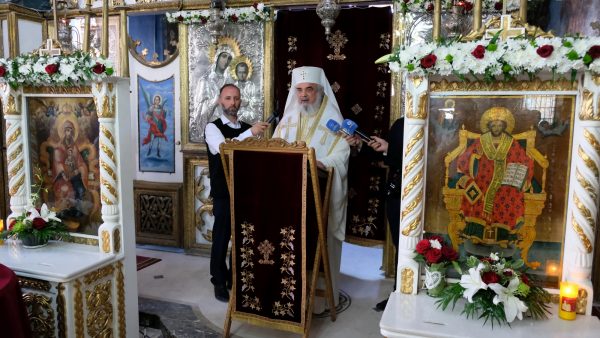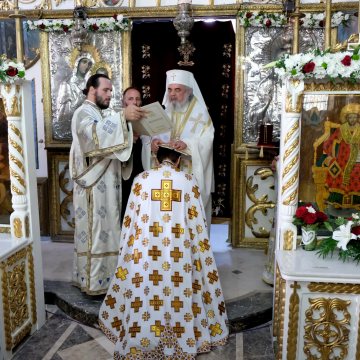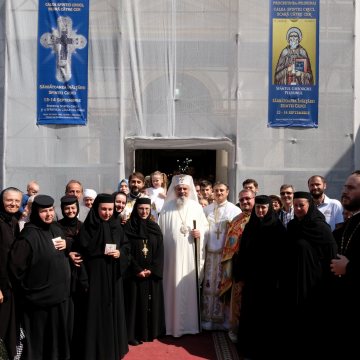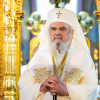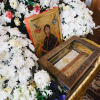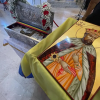Bearing one’s cross
The Patriarch explained in the sermon delivered at the Church of the Holy Cross and Saint Basil the Great on Victoriei Ave in Bucharest that every man has to carry a cross, but that it never becomes too heavy if he asks for God’s help.
His Beatitude Patriarch Daniel insisted that we should not bear our cross in isolation, but that we should call on God Who will help us not to fall into despair and to give “another sense to suffering.”
Let us use suffering as ‘a calling to draw nearer to God and change our lives,’ the patriarch said Sept. 15.
‘Noting the fragility of the earthly life, let us seek more and more the eternal heavenly life through faith, by partaking of the Holy Communion, through Confession, by sanctifying our life and doing good deeds,’ the Patriarch urged.
Steps of salvation
The Patriarch of Romania referred in his homily to the purpose of human life which is to prepare ourselves for the eternal heavenly life, to gain salvation.
He also explained the meaning of salvation as the union between man and the eternally living God.
Summarizing the day’s gospel reading, the Patriarch listed the four stages of salvation:
- The will of man to come to Christ;
- Self-denial;
- Taking on or assuming the cross;
- Following Christ.
Salvation depends on our freedom, His Beatitude noted. It is up to us to move apart from God through unbelief or to unite with God through faith and good works.
“God does not force anyone to follow Him, but He invites everyone to salvation.”
Self-denial
One of the conditions of salvation is self-denial. Patriarch Daniel explained what this stage entails, saying that it does not mean ‘depersonalization,’ but rather to reject ‘the selfish way of living.’
‘Self-denial does not mean the abolition of the person, but shifting the attention from the ego to God,’ the Patriarch of Romania said.
Saint George the Pilgrim
During his homily, Patriarch Daniel evoked the life of St George the Pilgrim, whose holy relics were brought from Varatec Monastery to Bucharest to mark the church’s patronal feast.
‘George the Pilgrim is one of the most representative Saints for the Romanian peasant. We thought he was the holiest of our peasants the Church knows. A man who from a very young age was very pious and did miracles during his life.’
“The saint remained a faithful lay believer all his life, but was very much appreciated by the hierarchs, priests, spiritual fathers because he asked for their blessings and prayed a lot and advised many people what to do in their life when they were facing difficulties.”
“He had inner peace and trust in God,” His Beatitude concluded his speech.
Photography courtesy of Lumina Newspaper / Mihnea Păduraru












